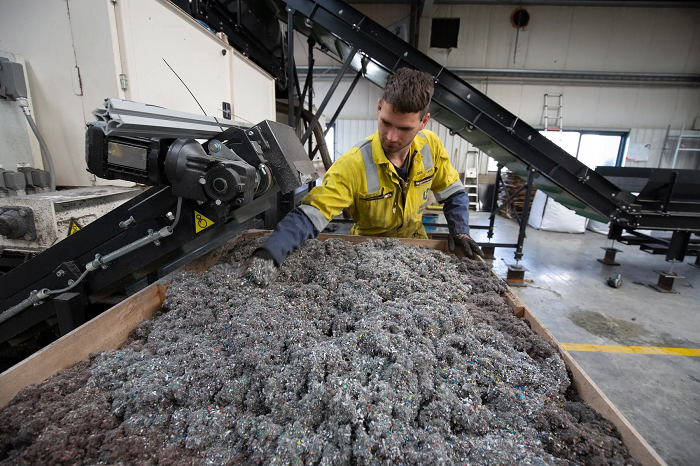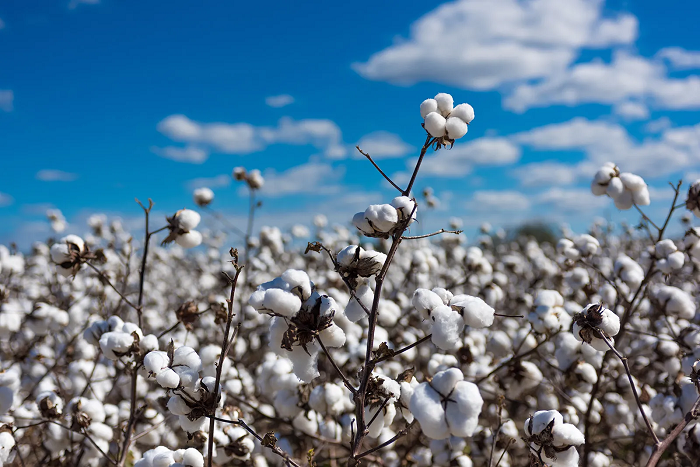FW
The textile and the garment industry in the Philippines is hoping the free trade deal with the United States will revive its struggling businesses.
The fact that the US is now focusing on bilateral free trade agreements instead of multilateral deals has made the Philippines optimistic.
The US is one of the Philippines’ oldest allies. At one time the Philippines used to be one of the biggest exporters of garments to the US. The industry used to be very competitive in its exports and was even considered a sunrise industry during the 90s.
Export performance, however, dropped since the abolition of textile quotas by the World Trade Organization in 2005. As a result, garment and textile enterprises in the Philippines which relied on quotas underwent difficulties leading to closure of factories and downsizing.
Garments might be eventually included under the US Generalized System of Preferences (GSP), a trade arrangement that allows market access for numerous Philippine exports. This will have to come after the inclusion of footwear in the US GSP.
However wrapping up an FTA might take years. In the meantime, textile and garment companies have been granted incentives such as an income tax holiday on preferred kinds of businesses that help reach inclusive growth.
Swiss Textile Machinery Association will hold a press conference during ITMA Asia & CITME 2018 in Shanghai. The conference will be held on October 16, 2018. Around 15 member companies of the association will present their latest technologies and solutions the conference.
ITMA ASIA + CITME 2018 is owned by CEMATEX and its Chinese partners – the Sub-Council of Textile Industry, CCPIT (CCPIT-Tex), China Textile Machinery Association (CTMA) and China Exhibition Centre Group Corporation (CIEC). It is organised by Beijing Textile Machinery International Exhibition Co Ltd and co-organised by ITMA Services. The Japan Textile Machinery Association (JTMA) is a special partner of the show.
The exhibition will feature around 1,700 local and international textile machinery manufacturers from 28 countries who will showcase the latest machinery, as well as products that boost automation and energy-saving features.
Federation of Pakistan Chambers of Commerce & Industry (FPCCI) will sign a trade economic cooperation agreement with the Greater New York Chamber of Commerce (GNYCC) in September 2018 to capitalise on declining Chinese textile exports to US.
As per official figures, Chinese textile and apparel exports to US are declining while Pakistan’s textile exports surged by 4.0 percent and apparels exports surged by 7.0 percent in May 2018. The US is one of the largest trading partners of Pakistan. However, the export base of Pakistan is narrow with heavy reliance on textiles and apparels for export earnings. China, Mexico, India, Vietnam, Indonesia, and Bangladesh are the main trading competitors of Pakistan in terms of its exports to the US.
In terms of textile and apparel exports, Pakistan continued to remain at seventh position last fiscal having 2.57 percent share in US’s overall imports to these products.
Ethiopia and Vietnam are cooperating in various fields. Among these are culture, economics, trade, science-technology and investment. However, the economic relationship remains modest.
The two countries first established diplomatic relations in 1976.
Ethiopia is a country situated in the Horn of Africa with a population of nearly 100 million. Agriculture remains a major part of the Ethiopian economy, accounting for 46 per cent of its GDP. Ethiopia is known for coffee, cotton, fruits, pepper, sugarcane and timber. The country also has Africa’s largest livestock population and the world’s tenth largest, providing meat, milk and leather for the processing industry.
Considered as a model for economic development in Africa, Ethiopia is the fastest-growing economy in the region, with its income per capita increasing by four times during the 2009-2017 period. It is seeking to privatise the banking, insurance and telecommunications sectors.
Vietnam’s export turnover has increased 21.2 per cent year-on-year.
Commitments for international integration have been implemented, helping reduce import-export taxes. A favorable business environment had aided export activities.
The country’s garment export turnover accounts for four per cent of the world’s total turnover. Total import-export turnover in the first seven months of this year rose by 12.7 per cent from the same period last year.
According to Canada-based Global News, China’s ambassador to Canada hopes to make progress on a free-trade agreement with Canada and others. The U.S. and China are locked in a trade war and China is seeking options for imports outside the United States. The trade war includes tariffs on U.S. agricultural products, presenting potential harm to U.S. farmers.
Free trade talks between China and Canada have also slowed as Canada has insisted on a progressive trade deal that would also cover some labor, environment, gender and governance issues. There was little progress on issues that are not directly related to trade.
Canada has its own tensions with China, as earlier this year Canada blocked a $1.5 billion takeover of a construction firm by a Chinese company, starting a trade deterioration between the two nations.
Turkey is one of the major markets for manmade textile products.
India is the second largest supplier of textile and apparel products to Turkey. Manmade textiles is the largest category with a share of 73 per cent in India’s textile and apparel exports to Turkey. This is followed by cotton textiles and apparel having a share of 20 per cent and three per cent respectively.
A large part of the manmade fiber-based fabrics manufactured and processed in India are low value added and primarily supplied to the mass market. In order to give a boost to exports, Indian firms need to invest in manmade fiber-based textile manufacturing processes. Also, the firms that are already manufacturing manmade based textile products should target Turkey as a key market. Moreover, Turkey is also a major importer of cotton textiles. Owing to the availability of raw material and infrastructure, Indian firms have a potential to increase their market share in Turkey in cotton textiles as well.
Manmade textiles are Turkey’s largest imported category, representing 47 per cent of total textile and apparel imports. This is followed by cotton textiles, apparel and others with a share of 26 per cent, 18 per cent and nine per cent respectively.
According to the NPD Group’s recently released “The Future of Apparel” report, athleisure currently accounts for 24 per cent of total apparel industry sales and this growth is likely to continue over the course of this year and into 2019.The report further highlights that sales of sweatshirts increased by double digits in the twelve months ending June 2018, while sales of active bottoms increased by 5 per cent.
The report demarcates consumers into six segments, including Connected Consumers, Brand Loyals and Retail Reluctant. It found that Social Shoppers, defined as being ‘fashion and image conscious,’ and ‘comfortable shopping online’, were representative of typical athleisure consumers. The study also points out that athleisure has become mainstream across all segments, having been embraced by consumers from a wide range of demographics.
Changing social attitudes concerning casual wear and increasingly health-consciousness among consumers have also contributed to activewear becoming a staple in the wardrobes of its consumers.
Cotton made in Africa (CmiA) currently certifies around 40 per cent of the cotton produced by smallholder farmers in sub-Saharan Africa. Demand from the textile industry for CmiA cotton has increased by around 79 per cent over the last year. Companies that have partnered with CmiA include Tendam Global Fashion Retail from Spain, Vlisco from Holland and Gudrun Sjöden from Sweden. Around 1,033,500 smallholder farmers in sub-Saharan Africa currently work with CmiA to grow cotton in accordance with its sustainability criteria.
According to figures for the FY 2017, demand for CmiA cotton is greater than ever. More than 30 retailers and brands from the textile industry purchase and process the sustainable raw material. Almost all of them have exceeded their targets for 2017. Around 90 million products with the CmiA seal of approval were launched on the market in 2017 in total, representing an increase of 79 percent in comparison to the previous year.
The Yamuna Expressway Industrial Development Authority (YEIDA) is in the process of setting up a textile park near the Jewar airport in Noida. The Authority held meetings with Noida Apparel Export Cluster (NAEC) and agreed to allot a 200-acre land to 100 textile businessmen. The park will boost industry growth by creating nearly half a million employment; 90 per cent of whom will be women. It will be ready in a span of three years.
The Yamuna Authority issued a list of 240 units for industrial land. These industries include those for textiles, telecommunications, X-ray machines, air-conditioning, copper metal parts, cotton, cycle, milk testing and its products.
The Noida-Greater Noida area is a textile hub with an annual export capacity of nearly Rs 14,000 crore ($US 2 bn). The domestic readymade garment market also has an annual turnover of Rs 3,000 crore($US 450 mn). Since the land in Noida and Greater Noida is costly, the businessmen are planning to expand their business in neighbouring areas such as Jewar.
ThreadSol, a pioneer in enterprise material management for sewn products’, will present its range of innovative software solutions at the upcoming Origin Africa 2018 show. The show will be held from September 09-11, 2018 in Nairobi, Kenya.
ThreadSol will introduce technologically driven products to drive African apparel manufacturing by boosting topline and bottom line for manufacturers and differentiate from the extremely competitive environment for breakthrough profits and improved customer service.
ThreadSol solutions- intelloBuy and intelloCut together work with the notion to boost revenue and profits for apparel manufacturers. The solutions work for the buying floor and cutting floor respectively and ensure reduction in fabric expenses at the buying stage and cutting of extra garment pieces at the cutting stage. The overall benefit is automation of the buying and cutting process which ultimately saves hours of manpower in the facilities.











